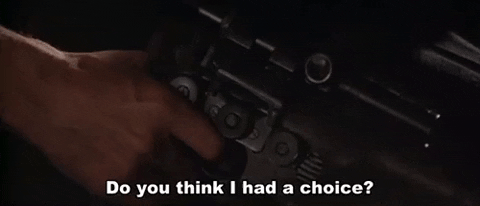
Question: is there an objective ‘Reality’ or a series of interdependent mental projections?
In other words, was Hitler a kind of nationally conjured totem to re-energize castrated and enraged Germany?
Were The Beatles a quadrant of awakening shamans that carried a generation from plodding rock, to sexy pop, then psychedelia and ultimately consumerism?
The events in the outer world are governed by subtler energies, many of which pass through our collective psyche.
No doubt meteors and hurricanes shape environment but culture, by definition, is the manifestation of human drives.
There are patterns, shapes and archetypes that recur.
JOSEPH CAMPBELL:
Well, a serendipitous adventure can take place, also, You know, what the word serendipity comes from?
Comes from the Sanskrit Swarandwipa, the Isle of Silk, which was formerly the name of Ceylon
And it’s a story about a family that’s just rambling on it’s way to Ceylon, and all these adventures take place.
And so you can have the serendipitous adventure as well.
BILL MOYERS:
Is the adventurer who takes that kind of trip a hero in the mythological sense?
JOSEPH CAMPBELL:
Yes, He is ready for it.
This is a very interesting thing about these mythological themes.
The achievement of the hero is one that he is ready for, and it’s really a manifestation of his character.
And it’s amusing, the way in which the landscape and the conditions of the environment match the readiness of the hero.
The adventure that he’s ready for is the one that he gets.
(Clip from “Star Wars”)
HAN SOLO:
Look, I ain’t in this for your revolution and I’m not in it for you, Princess.
I expect to be well paid.
I’m in it for me.
BILL MOYERS:
The mercenary, Solo, begins as a mercenary and ends up as a hero.
JOSEPH CAMPBELL:
He was a very practical guy, a materialist in his character, at least as he thought of himself.
But he was a compassionate human being at the same time, and didn’t know it.
The adventure evoked a quality of his character that he hadn’t known he possessed.
(Clip from “Star Wars”)
PRINCESS LElA:
I love you.
HAN SOLO:
I know.
JOSEPH CAMPBELL:
He thinks he’s an egoist, he really isn’t,
and that’s a very lovable kind of human being, I think, and there are lots of them functioning beautifully in the world.
They think they’re working for themselves, very practical and all, but no, there’s something else pushing them.
BILL MOYERS:
What did you think about the scene in the bar?
JOSEPH CAMPBELL:
That’s my favorite, not only in this piece, but of many, many pieces I’ve ever seen.
BILL MOYERS:
Why?
JOSEPH CAMPBELL:
Well, where you are is on the edge, you’re about to embark into the outlying spaces. And–
BILL MOYERS:
The real adventure.
JOSEPH CAMPBELL:
The real adventure.
This is the jumping-off place, and there is where you meet people who’ve been out there, and they run the machines that go out there, and you haven’t been there.
It reminds me a little bit in Robert Louis Stevenson’s Treasure Island, the atmosphere before you start off the adventure.
You’re in the seaport, and there’s old salts, seamen who’ve been on the sea, and that’s their world, and these are the space people, also.
No comments:
Post a Comment